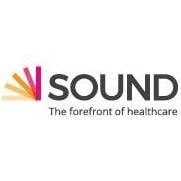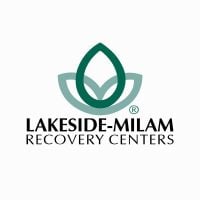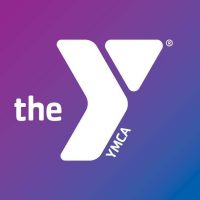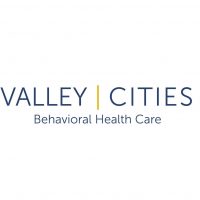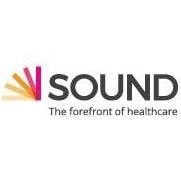Auburn, Washington Drug Rehab Centers
There is no doubt that drug addiction is a serious problem in Auburn, WA. According to recent statistics, there were more than 1,500 arrests for drug crimes in the city between 2016- 2019. This is a rate of about 4.5 arrests per day and comes as no surprise to those who work closely with individuals struggling with addiction and substance abuse problems. Most drug arrests were related to the possession of methamphetamine, followed by other types of opioids, cocaine, and marijuana.
There is always help for anyone struggling with drug addiction and drug problems. With the right kind of help, an individual can successfully stop using drugs or alcohol, overcome their addiction, and enjoy a much healthier and happier lifestyle.
With a variety of opioid and alcohol rehabilitation services operating right in Washington, there is opportunity for treatment and a better life. Browse below and find all of the treatment facilities in Auburn. We have listed hard to locate alcohol and drug rehab centers.
Contact Our Admissions Expert Hot-Line
We will help you find treatment based on your location, budget, and specific needs and help you get started safely.
Free + Confidential Consultation
Browse 15 Centers in Auburn, Washington
Sound Counseling Services – Auburn is an addiction treatment facility in Auburn, WA founded in 1966 offering a range of services such as dual diagnosis, opioid addiction, substance abuse and drug addiction treatment, as well as mental health and aftercare support, supported by private health insurance options.



The Lakeside Milam Recovery Centers - Auburn is an accredited drug rehab center located in Washington that offers comprehensive inpatient and outpatient treatment programs with an array of aftercare support services to assist individuals in their recovery process.

Nexus Youth and Families
Nexus Youth and Families in Auburn, Washington is an addiction treatment facility that offers comprehensive care and treatment for individuals and families affected by drug and alcohol addiction, including specialized services and various levels of care.
The Future Visions Program in Auburn, Washington offers a comprehensive continuum of care for individuals and families struggling with addiction and substance abuse, providing evidence-based interventions and a safe and supportive environment to access treatment, with services such as counseling, medication-assisted treatment, and aftercare support.
Hope Help Counseling is an Addiction Treatment Facility in Auburn, WA that provides tailored treatment and recovery plans for those suffering from opioid addiction, substance abuse, and drug addiction with an emphasis on family support and evidence-based therapies.
Muckleshoot Family and Youth - Behavioral Health is a state-licensed and accredited treatment center in Auburn, Washington, offering a variety of services including detox, drug rehab, dual diagnosis, and outpatient treatment for addiction and mental health issues.

The Muckleshoot Indian Tribe of Auburn, Washington provides a variety of services, including addiction counseling, medical treatment, and behavioral health assessments, to improve the lives of individuals and families from their tribe and other local communities, while also focusing on prevention and treatment through a range of services and following strict standards.
Valley Cities Counseling, located in Auburn, Washington, is an accredited mental health facility offering evidence-based treatment for addiction and substance abuse, including inpatient and outpatient care, medically managed detox, medication-assisted treatment, counseling, life skills development, and specialized treatment for co-occurring disorders and trauma.
Hope Help Counseling provides compassionate care and a comprehensive range of services for individuals and families affected by substance abuse and addiction in Auburn, Washington, including individual, family, and group counseling, education, support, job training, and life skills development.
Sound Mental Health - 29th Street Southeast
Sound Mental Health in Auburn, Washington is an addiction treatment facility that provides comprehensive mental health services to the surrounding communities, offering outpatient treatment options and addressing underlying issues that lead to addiction.
All About Choices
All About Choices provides tailored addiction treatment with evidence-based practices, holistic treatments and 24/7 medical supervision to meet the unique needs of individuals looking to get sober.
Reality Center
The Reality Center in Auburn, WA provides comprehensive and personalized drug rehabilitation programs to treat many addiction issues and disorders, with a focus on providing patients with the tools they need to successfully manage their addictions.
South King Alano Club
Assessment and Treatment
Aspire Counseling and Treatment offers specialized and individualized care for drug rehab, outpatient treatment for alcohol abuse, opioid addiction, and substance abuse, integrating evidence-based therapies and providing ongoing support for achieving and maintaining sobriety.
Western Washington Alcohol and Drug Center - Auburn
The Western Washington Alcohol and Drug Center - Auburn in Auburn, Washington provides support and assistance to individuals seeking to overcome alcoholism, opioid addiction, substance abuse, and drug addiction through a range of personalized treatment plans and services.
Drug and Alcohol Treatment in Auburn, WA
If someone you care about is living with an addiction and battling substance abuse problems, there are several steps you can take to help them get the right kind of addiction treatment.
First, you need to educate yourself about drug abuse and addiction. Doing so can help you create an action plan for helping your loved one. Second, you need to find a drug treatment facility that offers the services and treatments that meet your loved one’s needs and can help them overcome their addiction and develop a healthier lifestyle. Finally, you need to be supportive and encourage your loved one throughout the recovery process. With all of these steps firmly in place, you can help ensure that your loved one gets the best and most effective treatment possible.
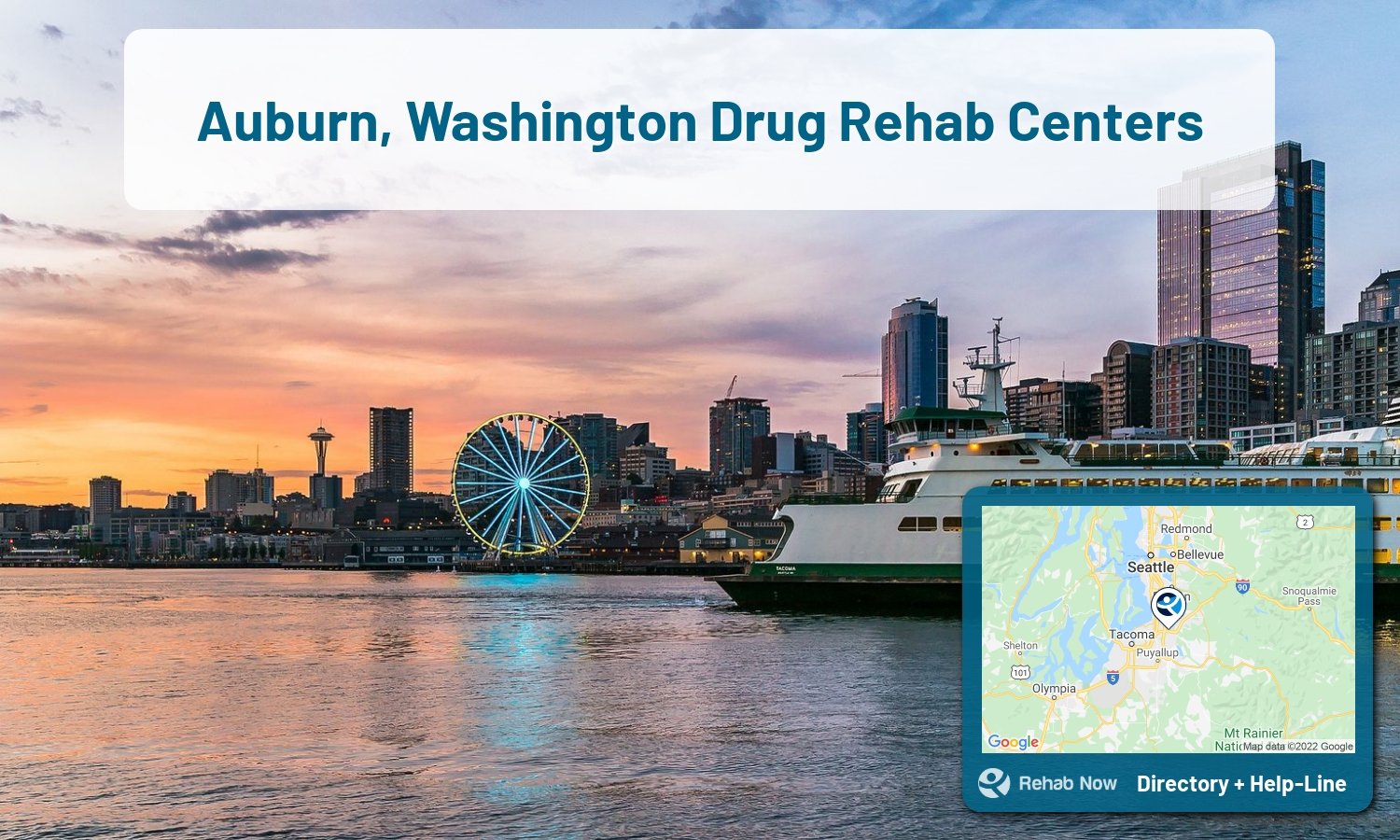
What Types of Treatment Are available in Auburn, Washington?
There are several different types of drug rehabilitation facilities that you can choose from.
Inpatient or residential treatment centers require that you live at the facility for a certain length of time and that you follow their rules. It can be very intense and is generally recommended for people with an addiction that interferes with their life in a major way.
Outpatient treatment centers in Auburn, WA frequently offer similar services and group therapy sessions to residential treatment programs, but you live at home and can still hold onto a job and family responsibilities. These types of programs take a lot less commitment, but can still be very valuable to your recovery.
Drug Abuse Statistics in Auburn, Washington
According to the National Survey on Drug Use and Health, there are about 5,000 people who are struggling with substance abuse problems in Auburn alone. The survey also showed that about 1,000 individuals had abused illicit drugs for the first time within a 12-month timeframe.
In fact, studies have shown that almost 55% of individuals in Auburn who are addicted to drugs started using them when they were teenagers.
• In 2018, about 6.8% of young adults aged 18-25 abused drugs or alcohol for the first time.
• The number of arrests related to drug offenses and addiction went up by more than 61% from 2012 to 2018.
• From 2014 to 2018, more than 10,000 individuals received treatment for problems related to drug addiction.
• In 2015, there were more than 100 emergency room visits in Auburn because of new drug use or problems related to addiction.
Additional Treatment Centers in Washington
Washington's substance use, abuse, and addiction rates have followed the trends of the rest of the over the past years. Methamphetamine abuse is the biggest threat to Washington. Heroin-related overdoses increased by almost 450% from 2006 to 2016. 20% of all annual deaths in Washington are somehow drug and/or alcohol-related. Drugs are widely abused in Washington because they are easily trafficked in and out of the state.
Still haven't found the right recovery center? Browse nearby Washington cities.
- Yelm, WA (33.2 mi.)
- Tokeland, WA (94.0 mi.)
- Fall City, WA (21.9 mi.)
- Seattle, WA (18.8 mi.)
- Pasco, WA (167.0 mi.)
- Clarkston, WA (253.0 mi.)
- Suquamish, WA (30.8 mi.)
- Coupeville, WA (64.2 mi.)
- Port Angeles, WA (77.6 mi.)
- Toppenish, WA (112.5 mi.)
- Airway Heights, WA (217.3 mi.)
- Goldendale, WA (124.7 mi.)
- Seattle, WA (149)
- Spokane, WA (90)
- Tacoma, WA (55)
- Vancouver, WA (49)
- Yakima, WA (45)
- Bellevue, WA (38)
- Everett, WA (34)
- Olympia, WA (25)
What You Can Do if You See Someone Struggling with Drug Problems
Although you should never pressure someone struggling with addiction to get help, there are things you can do to help them get better. If you see someone struggling with drug problems, make sure they know that you are there for them and willing to listen. Also, be conscious of their behaviors and how they relate to drug abuse.
Provide them with emotional support throughout the recovery process. You can also engage in conversations that help them understand the risks and dangers of drug use and addiction. If your loved one is not ready to get help, respect their decision and support them as best you can.
How to Talk to Someone about Drug Addiction
Most people find it difficult and intimidating to talk to someone about their drug problems, but the truth is that sharing your struggles and fears with someone can help you heal If you are considering talking to someone about drug addiction, here is what you can do:
- Be honest – Sticking with the truth is the best way to go.
- Be calm and understanding – If you get angry, the person might shut down and not listen to anything you say.
- Write down your thoughts – Jotting down key points in a notebook or on a piece of paper can help you organize your thoughts and talk about them more easily.
- Write down what you would like to say – If you’re not sure of what you want to say, writing it down can help you figure it out.
- Ask the person what they think you should do – Allow them to participate in the conversation and take a more active role in their healing and recovery.
How to Find the Best Drug Treatment Facility in Auburn, WA
When it comes to finding a drug treatment facility in Auburn or anywhere else, there are several factors you need to consider and questions you need to ask. For example, you should find a facility that offers treatment for the specific drug or drugs your loved one is struggling with.
You should also consider checking accreditation and licensing requirements as well as the qualifications of the staff members who work there. Make sure the center is equipped to offer a full spectrum of care and give your loved ones all the tools they need to overcome their drug addiction.
Drug Treatment & Rehabilitation Programs
Although there are many different types of drug treatment programs, you’ll find that most of them follow the same general format. The first step in any drug abuse treatment plan is detox. This process allows your body to rid itself of drugs as you remain under medical supervision.
After completing detox, most people will go through inpatient or outpatient rehabilitation programs that allow them to learn coping skills and develop healthy relationships.
Programs also help you identify the triggers that led to your drug abuse and learn how to avoid similar situations in the future. Most people go through one or more follow-up sessions after completing a drug rehabilitation program to ensure that they stay sober and avoid relapsing.
Drug Abuse Prevention in Auburn, WA
If you are concerned about drug abuse in your community and want to help prevent it, there are several things you can do. First, you can get involved with a prevention initiative to help educate young people about the dangers of drug use and addiction.
You can also take part in community events that promote drug awareness and educate people about the harmful effects of drugs. You can also get involved with or speak out against destructive behavior in your community by encouraging recovery for individuals struggling with addiction.
Lastly, you can start a conversation in your family about the dangers of drug use and addiction. Making sure that younger siblings understand the risks can help protect them in the future.
Our experts can help you find treatment now in Auburn, Washington. We list drug rehab and alcohol centers in Washington. (888) 674-0062.
